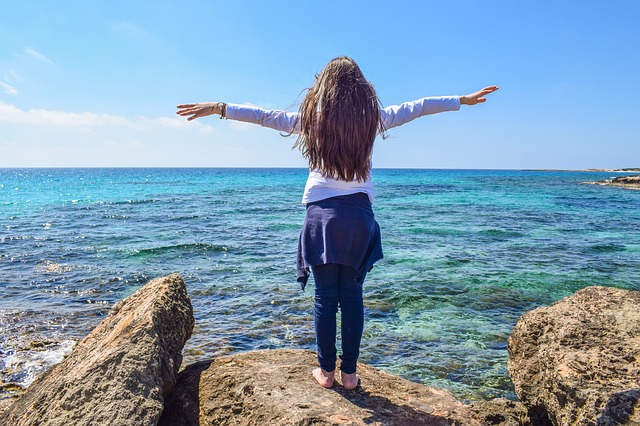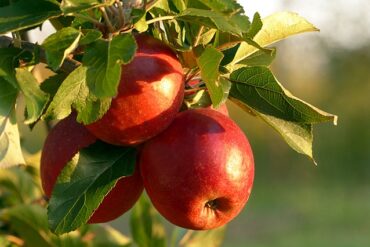The Dutch have Hygge and the Swedes have Lagom; those Scandinavians sure do know a thing or two about wellness. But to discover the ultimate gurus of wellness you’d have to travel a lot further East. To most modern Japanese and Chinese people the ancient traditions and wellness practices of their ancestors are so ingrained into their mindset that it is simply a way of life. And it is a mindset we could all benefit from adopting. If you’re feeling like a bit of a wellness novice, then don’t worry, as we’ve put together our list of the top Eastern wellness principles that we reckon will have you feeling Zen again in no time.
Ikigai
This is for those of us on a quest to discover our true purpose; our reason for being. It’s about gaining pleasure from the little things, being content, feeling fulfilled by each and every separate component of our lives.
Loosely translated as ‘the meaning of life’, Ikigai (pronounced ick-ee-guy) is a Japanese concept that requires the unity of four essential areas in your life. It is only when these all come together and work in harmony with one another that a true state of Ikigai can be achieved.
OK sounds good, so what do we need to be looking at then?
In order to discover your own personal state of Ikigai you must be able to answer the following questions:
- What are you are passionate about?
- How can you make a difference to the world?
- What are you good at?
- Can you afford it?
Some pretty deep questions I know, but that’s the whole point. They’re designed to make you stop and think and to question what it is you want out of life, kind of like coming up with your grand life plan if you like. And it’s not very often that we allow ourselves the time to answer these sort of questions, because we’re always so busy caught up in the mundanities of the everyday.
But that feeling of self worth and of having a purpose is so important to our wellbeing. It’s what makes us feel joy, it makes us feel included, it makes us feel part of the bigger picture, it gives us value. So set yourself some time to jot down your answers to these questions and re-evaluate where you’re at in order to get that little bit closer to finding your Ikigai.

Nunchi
Originating from Korea, Nunchi (pronounced noon-chi) is basically about judgement. OK, so arguably it’s not a word you’d associate with wellness, but stick around and all will be revealed. The literal translation of Nunchi is ‘eye measure’, as in to look someone up and down in order to get the measure of them; to figure them out. And as judgey as this sounds, it’s more about working out what people are like, gauging their thoughts and feelings as a means to build trust and respond well to them, rather than a full on bitchy judgefest.
The Koreans label a person with no Nunchi as being socially awkward; that means zero people skills, uncomfortable silences, and a whole heap of sweaty palms. It is anxiety overload and I should know, because I am definitely one of life’s socially awkwards. If you are lucky enough to have Nunchi already then well done, because sounds like you’re winning at life. You know how to react, when to smile, when to offer sympathy, when to be quiet, when to speak up. There’s none of this awkwardness when you first meet someone, be it in your personal or your work life, you approach a situation with confidence and you just get it. Nunchi is being able to grasp a hold of a situation, to weigh it up, suss it out and then respond accordingly. However, Nunchi is more than that, it’s also about trusting and going with your gut; to believe in yourself and your judgements. And there we have it, there we hit the wellness nail on the head. Self belief; one of the greatest wellness principles of all.

Kakeibo
The Japanese art of budgeting, or Kakeibo to give it its proper name, doesn’t sound like your average Eastern wellness principle I grant you, but this is budgeting as an art form. There’s none of this collecting your coppers in a jam jar malarkey, this is full on financial bullet journaling and we all know that anything which involves the use of a journal has got to be good for our wellbeing and mental health!
Money worries are one of the most common problems to cause us stress and it’s damaging our mental health. Kakeibo won’t make you richer, it won’t help you win the lottery and it won’t clear your debts, but what it will do is help you gain control and hopefully ease some of the anxiety.
Being more mindful with your money involves forward planning, keeping track of in and out goings, sticking to a budget, and saving (if you can!). Keeping a journal helps clear the workings out from your mind and makes it much easier to plan, and way easier to stick to it. Think of it as a form of decluttering for the mind if you like and we think that’s exactly the kind of wellness we could all make use of.

Shinrin Yoku
We all know how good spending time outdoors is for us – all those feel good endorphins and a chance to blast away those cobwebs. Well the Japanese have a word for this… let us introduce you to Shinrin Yoku.
Shinrin Yoku was created in Japan during the 1980s and is more specifically focused on the wellness benefits of spending time in a forest, surrounded by trees, breathing in nature. You may have heard of forest bathing… that’s Shinrin Yoku. To do Shinrin Yoku properly you need to firstly leave all distractions at home; that includes your phone, your kids, your worries, your problems. This is all about capturing the moment, experiencing the joy of just being. Of being in a beautiful, peaceful environment, where your head can be still and clear and your body can reset and reenergise. For the best Shinrin Yoku experience choose a clear day – it doesn’t need to be warm, but ideally it shouldn’t be raining. Wander aimlessly, without purpose. Pay attention to your senses. Listen to the crack of twigs underfoot and the sound of birdsong from overhead. Smell the damp, earthy scents surrounding you. Notice how the rays of the sun filter through the leaves (the Japanese also have a word for this – Komorebi).
Spending time outdoors is proven to help lower blood pressure, reduce stress, help with mental health and of course there are numerous physical benefits to be had as well. Now I know that heading to a forest might not be the easiest thing in the world, but it’s more about getting outdoors in the fresh air and so ultimately it doesn’t matter where you are. It’s about finding your happy place, your sanctuary, your place of calm, wherever that may be.

Wabi Sabi
This is my favourite of all the eastern wellness practices, because it centres around the belief that imperfection is where true beauty lies, and I am ALL for embracing the imperfect!
Wabi (meaning transient beauty) Sabi (meaning to see through appreciative eyes) is what we’ve all been waiting for. It cuts us some slack. It tells us we’re good enough. And oh my goodness how we all need to hear that, right? But it’s not just about how we perceive ourselves, it’s also about recognising and appreciating the things in our lives that perhaps don’t always go to plan. Essentially it’s about being grateful. Finding joy in the simple things. Learning to love everything, no matter what its flaws may be. Because everything and everyone has imperfections in some shape or form, but when we start seeing them not as imperfections but as qualities, the things that make us unique, that things that makes us ‘us’, well that’s Wabi Sabi.

Kintsugi
This one leads on very nicely from Wabi Sabi as it is very similar in that it celebrates imperfections by making them good. Kintsugi is the Japanese art of taking broken pottery and ‘fixing’ it with gold alloy. The resulting piece is something of utter beauty for it tells the story of the object in question and acts as a metaphor for having once been broken but having the strength to rise up and make good that which seems bad.
Kintsugi reminds us to be resilient; we can face up to life’s challenges no matter what they may be. It reminds us to be accepting and to be kind to ourselves; we can embrace our lines, our asymmetry, our wobbles, our scars for these are the marks of our life laid out before us. And perhaps more than anything Kintsugi teaches us that hey if we break something it really isn’t the end of the world; things can be fixed. We can be fixed. Tomorrow is a brand new day.

Yang Shen
2020 sees a new eastern wellness principle brought to our attention, in the form of the Chinese practice of Yang Shen. Yang Shen translates as ‘to nurture life’ and is about balancing mind, body and soul to reach ultimate wellness. Yes, this is the mother of all wellness practices!
The theory behind it is that prevention is better than cure and so by following a healthy lifestyle to help nurture the three elements of mind, body and soul we are able to ideally prevent certain health conditions from occurring or at the very least hold them off for as long as possible. In other words it is health mindfulness. It is about listening to our bodies, paying attention to the messages it sends out. We should only eat when we are hungry and stop when we are full. We should respect the need for rest days and yet also grant it the movement it needs to carry on working to its best ability. We should fill it with good, give it what it needs to thrive and also recognise the things that give it joy. And the same can be applied to the mind and soul too. Balance; that is the key word to Yang Shen. Everything in moderation and a little bit of what you fancy will always do you good.
Long lasting health, happiness and wellness cannot be achieved through radical diets, relentless fitness regimes, and endless bullet journals. It lies within the small, simple everyday practices that bring us those moments of joy. Yang Shen acknowledges these practices and teaches us to make them daily rituals that have as much importance as brushing our teeth.

Feeling a little better now? I know I am. Simply reading about these eastern wellness principles is enough to make you feel those positive vibes isn’t it. What’s worth remembering is that none of us are perfect, we’re all a work in progress, we all need to be more kind, more forgiving, both to ourselves and to others.
Join The Conversation – Which One Of These Eastern Wellness Principles Could You Do With The Most?
You can comment and follow us on:
- Facebook – @thisishealthyliving
- Twitter – @ArtHealthLiving
- Instagram – @arthealthyliving
Or leave us a friendly comment below.
Author Bio
 Becky Stafferton is a full time blogger over on her website The Art of Healthy Living, mum of 2 and certified Queen of the hashtags. She continually strives to promote a realistic, sustainable and positive image of how to lead a healthy life. When she’s not writing she can be found swigging Prosecco from the bottle, running through muddy puddles, making lists of lists, having a good old moan, scoffing flapjacks and squatting like her life depends on it.
Becky Stafferton is a full time blogger over on her website The Art of Healthy Living, mum of 2 and certified Queen of the hashtags. She continually strives to promote a realistic, sustainable and positive image of how to lead a healthy life. When she’s not writing she can be found swigging Prosecco from the bottle, running through muddy puddles, making lists of lists, having a good old moan, scoffing flapjacks and squatting like her life depends on it.



































